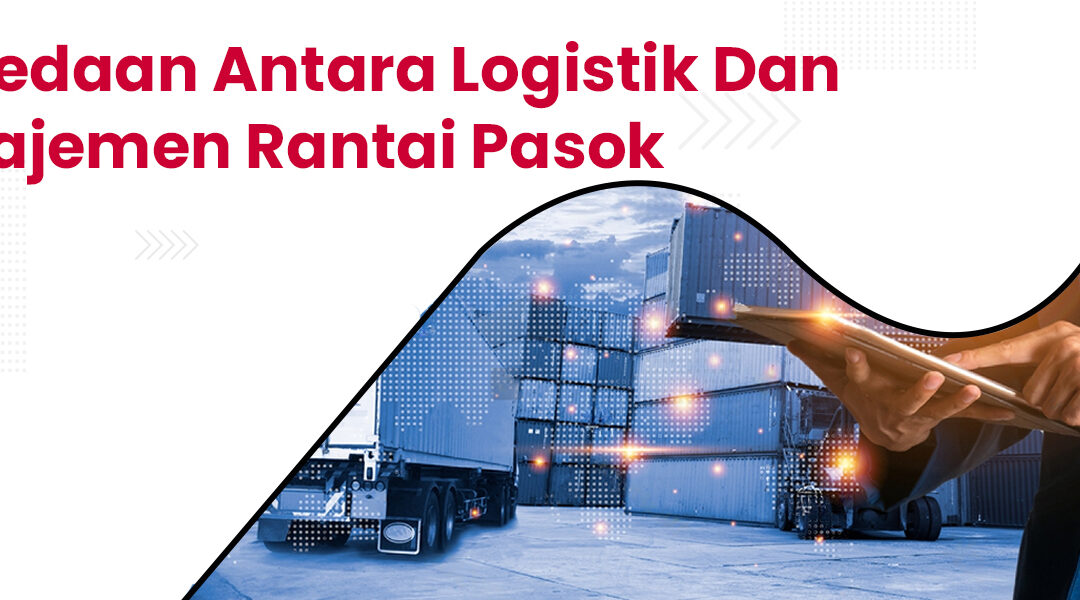Logistics and supply chain management are related to each other, but they are different. Logistics is the process of transporting and storing goods from one place to another. Whereas supply chain management directs logistics and many other aspects such as production, procurement, and inventory.
Logistics has an important role in delivering a product from point A to B but it is still a small piece of the existing puzzle, the puzzle is supply chain management. If an e-commerce is to be successful, their logistics and supply chain must work together.
What is the difference between logistics and supply chain management? The main difference lies in the focus they have. Logistics has a focus on the movement of goods, while supply chain management has a focus on the flow of existing goods from the time of procurement until they are in the hands of consumers.
What is logistics management and supply chain management?
The main goals in logistics management are to reduce transportation and storage costs, optimize delivery schedules, and ensure on-time delivery. Logistics management also coordinates multiple logistics service providers such as warehouses, couriers and distribution centers.
On the other hand, supply chain management involves planning and managing the process of sourcing raw materials or products, manufacturing them, and distributing them to consumers. It also involves multiple vendors and suppliers to get the best prices for raw materials or products and find ways to streamline existing production processes.
The main objective of supply chain management is to improve business efficiency and customer satisfaction.
E-commerce sellers must be able to distinguish between logistics and supply chain management. To be successful in this field, it is necessary to have a good understanding of these two things.
10 differences between logistics and supply chain management
- Logistics focuses on the movement of existing goods, while supply chain management covers the entire flow of goods from sourcing and procurement to the delivery process. Logistics management is the last thing in the supply chain process, the goal is to deliver products to consumers on time in good condition. Meanwhile, supply chain management includes shipping arrangements, raw material procurement, supplier search, inventory management, and many others.
- The main goals in logistics management are to reduce transportation and storage costs, optimize delivery schedules, and ensure on-time delivery. Supply chain management aims to improve business efficiency and customer satisfaction. There are many processes in it such as procurement, inventory, and logistics management and returns.
- Logistics requires coordination with multiple service providers such as warehouses, couriers, and distribution centers. While supply chain management involves a collaborative process with vendors and suppliers of raw materials or products.
- Logistics is a term that exists in supply chain management, but both have different concepts.
- A professional in logistics must have good analytical skills to be able to determine effective and targeted transportation routes and logistics plans. Meanwhile, a supply chain manager must have good communication and negotiation skills to be able to work with vendors and suppliers.
- A professional in logistics may specialize in several areas such as logistics for transportation, logistics for warehouses, or reverse logistics . Meanwhile, a supply chain manager may specialize in supply chain analysis or logistics information systems.
- Logistics focuses on the movement of goods over time, while supply chain management requires a longer time frame for existing procurement and production processes.
- Personnel in the logistics industry often work with those from the shipping department, while supply chain managers work more often with the purchasing and production departments.
- The logistics industry requires logistics service providers such as warehousing and couriers, while the supply chain requires sellers and manufacturers.
- Effective logistics management can reduce transportation and warehouse costs, and increase customer satisfaction by providing faster delivery. Meanwhile, effective supply chain management can reduce production costs, improve product quality, and provide many other competitive advantages. Overall, logistics and supply chain management have a big role in the success of an e-commerce business.
How can logistics and supply chain management benefit e-commerce businesses?
Logistics and supply chain management have become very important for e-commerce businesses as they provide smooth operations and successful delivery of goods to consumers. A business will not be able to process inventory properly without efficient logistics. On the other hand, effective supply chain management ensures a smooth flow of products in existing processes by coordinating and cooperating with various suppliers, manufacturers and distributors of raw goods or products.
In essence, logistics focuses on the movement of existing goods. While supply chain management oversees the flow of goods from their origin to the hands of consumers. Both are very important to provide satisfaction to customers by providing high quality products that are delivered in a timely manner.
Business people must be able to understand the difference between logistics and supply chain management to be able to manage their business properly and manage business operations properly and smoothly. Both of these fields require strong organizational, communication and decision-making skills, as well as extensive knowledge of industry and technological developments.
Strong logistics and supply chain capabilities can provide many benefits to your business by streamlining existing processes, increasing efficiency and ultimately driving revenue.
Tips on optimizing logistics and supply chain management to increase business success
- Utilize logistics technologies such as transportation systems management, artificial intelligence, blockchain, Internet of Things (IoT) to simplify operational processes and increase efficiency. Using technology can provide a competitive advantage, increase customer satisfaction and, ensure continuity in the supply chain.
- Develop strong relationships with logistics service providers to be able to negotiate prices so as to get affordable prices, build an effective transportation network, optimize the production process. Good relationships with suppliers can help you avoid possible supply chain disruptions.
- Always monitor and analyze the performance of logistics and supply chain and implement changes that can improve efficiency and customer satisfaction. Transparency is essential to be able to find holes in complex supply chain processes.
- Stay updated on industrial and technological developments to keep growing in this ever-changing business.
- Collaborate with partners in the supply chain to provide smooth operations so as to meet consumer needs in a timely manner
- Collaborate and cooperate with delivery partners and suppliers to establish strong relationships and ensure the smooth running of existing supply chain processes.
- Continue to solicit consumer input and suggestions and use data analytics to improve the consumer experience.
- Review existing logistics and supply chain strategies on a regular basis to be able to develop and manage existing strategies.
Conclusion
At its core, logistics and supply chain management are critical to the success of a business. By managing the flow of goods efficiently, businesses can improve operations, customer satisfaction, and existing profits. Therefore it is very important for businesses to be able to understand and differentiate logistics and supply chain sourcing management in order to survive and succeed in the e-commerce industry.
FAQ’s
What is supply chain management?
Supply chain management is a process of simplifying the flow of goods from producers and procurement to the delivery process. As a result, companies can cut costs and offer services to customers at a more affordable price thanks to the efficiency of the supply chain management system. This is possible with the help of technology and good teamwork.
What are the 4 main components in supply chain management?
The 4 main main components in supply chain management are:
- Integration
- Operation
- Purchase
- Distribution
What are the 5 basic steps of supply chain management?
The 5 basic steps of supply chain management are:
- Planning
- Procurement
- Manufacture
- Delivery
- Return
What are the 3 types of supply chain strategies?
- Sourcing and procurement strategy
- Operational strategy
- Storage strategy and order fulfillment


